The Olympic Games are the biggest sporting event in the world. While most people may think that sports and digital marketing don’t go together, it’s an unprecedented opportunity for digital marketers to connect with a global audience. Launching Olympic-related marketing campaigns is a strategy that has connected companies with the event, thereby allowing them to reach a wider audience and generate interest in their products or services.
In fact, the Paris 2024 Olympics have gone digital, offering more viewing and sponsorship opportunities than ever before. So the Mobupps team wanted to take a closer look at the key tactics used by brands during the Games.
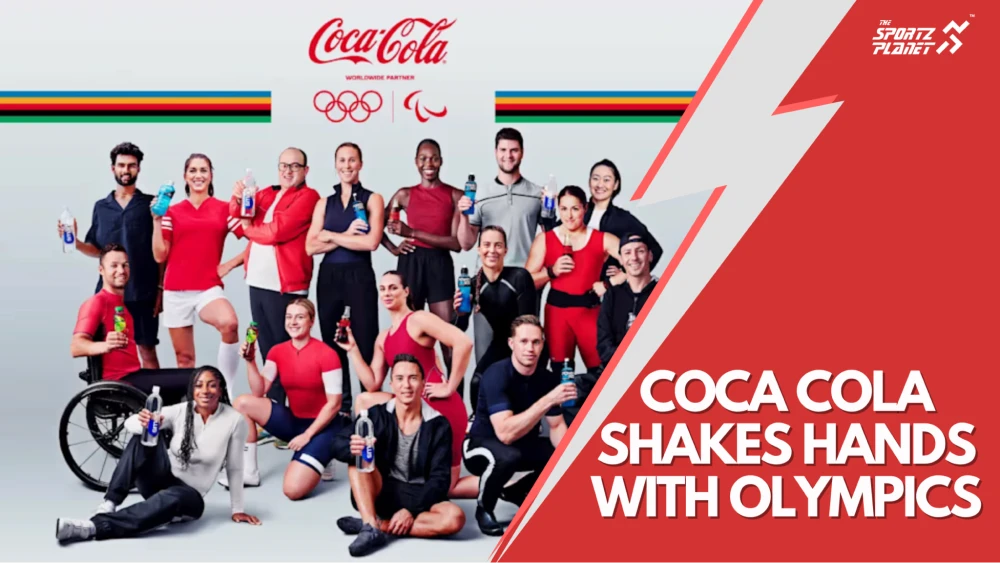
The usage of digital media has had a significant impact on Olympic marketing. The days of conventional media such as print, radio, and television are over; the 2008 Beijing Games were the precursor of the widespread use of social media sites such as Facebook and Twitter to engage people in real-time.
Fast forward to the 2012 Summer Olympics in London, and digital marketing has advanced even further with mobile applications, live streaming, and interactive content. The 2016 Rio Games and the 2020 Tokyo Olympics followed suit in this sense, showcasing increasingly sophisticated digital marketing strategies that have shifted toward employing social media, mobile technology, and data analytics to reach out to worldwide audiences.
In 2024 we evidenced compelling data. With 3.2 billion expected interactions, Paris 2024 has broken records for digital engagement. Platforms like Instagram, TikTok, and Twitter were central to memes and viral moments. The Games indicated numbers three times higher than expected.
According to Alejandro Lifschitz, the IOC's Deputy Director of Digital Engagement and Marketing, there were 11 million interactions by 6 August, 80% more than for the Tokyo 2020 Olympic Games. Digital searches have also tripled compared to previous Games and the IOC's online community has grown with 27 million new followers.
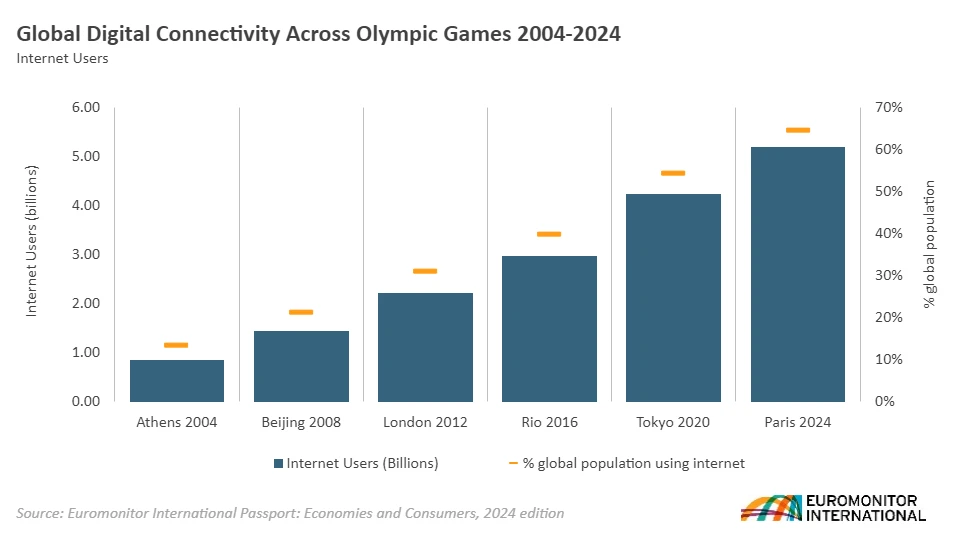
Besides that Olympics have increased the reach and influence of athletes on these platforms. Athletes have been given the freedom to share their Olympic journey, their daily lives, training, and relaxation.
By leveraging creative campaigns and partnerships with athletes, brands could expand their global reach, boost visibility, and forge emotional connections with consumers. This year, companies like Samsung utilized this marketing approach with their 'Open Always Wins' campaign, featuring skateboarder Aurélien Giraud, Paralympic athlete Johannes Floors, and breakdancer Sarah Bee to push the boundaries of the screen, symbolizing their commitment to openness and tolerance. Similarly, Allianz launched the 'Get Ready for Paris' campaign, a ten-part series documenting the journeys of athletes worldwide.
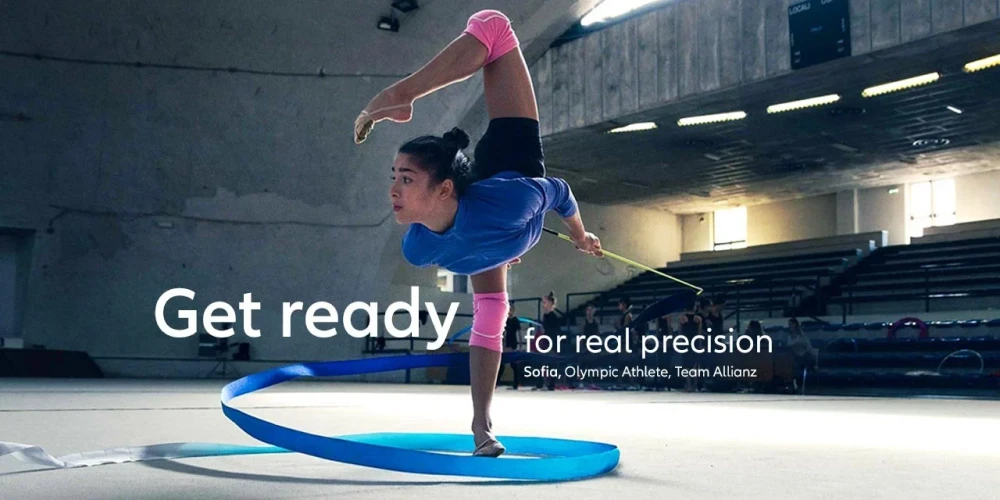
1. Social Media Campaigns
Using social media platforms to market the Olympics has been a key strategy in the playbook to curate and share content that equally resonates with athletes as well as fans. Such campaigns typically include:
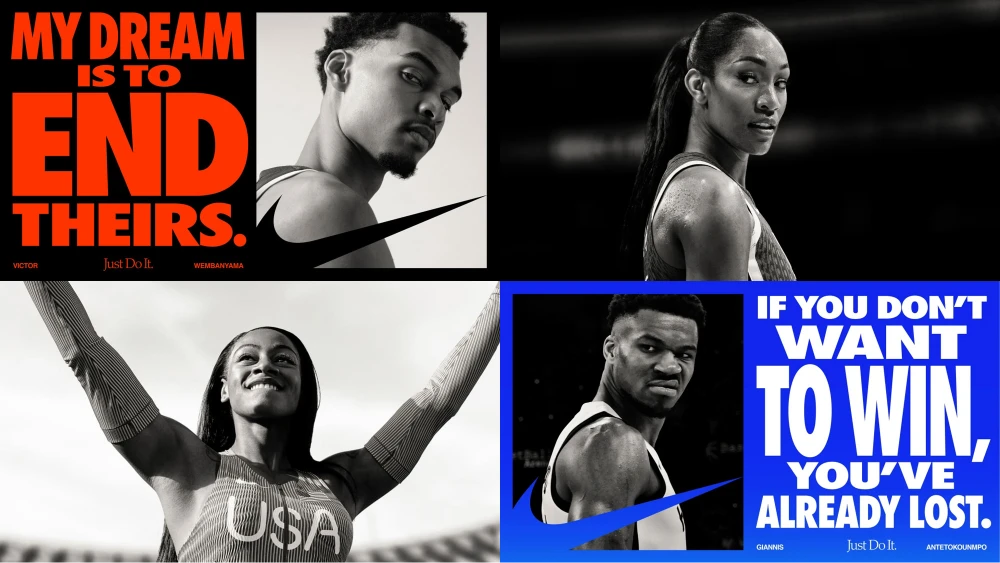
2. Interactive and Immersive Experiences
This year’s Games were the most technologically advanced ever, with AI and immersive AR/VR experiences, transforming how fans interact with and experience the event. With a multitude of digital partnerships and cutting-edge technologies, the Paris Olympics aimed not only to provide dynamic, interactive experiences for fans worldwide but also to open up new avenues for advertising.
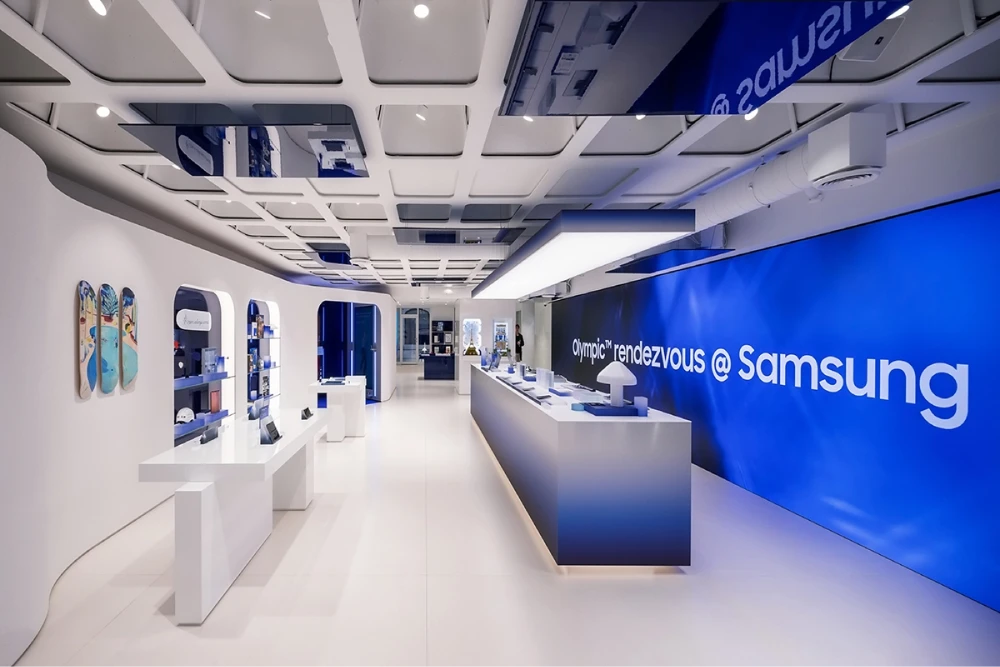
The future of the Olympics in digital marketing, as technology continues to grow at the speed of light, just holds a lot of promises with more innovation in the following areas:
That's how breathtaking the 2024 Olympic Games were. We can only guess what they will be like next time. What we know for sure is that if you are looking for a mobile ad tech company capable of leveling up your marketing strategy, then click the red button below.
The Olympic Games are the biggest sporting event in the world. While most people may think that sports and digital marketing don’t go together, it’s an unprecedented opportunity for digital marketers to connect with a global audience. Launching Olympic-related marketing campaigns is a strategy that has connected companies with the event, thereby allowing them to reach a wider audience and generate interest in their products or services.
In fact, the Paris 2024 Olympics have gone digital, offering more viewing and sponsorship opportunities than ever before. So the Mobupps team wanted to take a closer look at the key tactics used by brands during the Games.

The usage of digital media has had a significant impact on Olympic marketing. The days of conventional media such as print, radio, and television are over; the 2008 Beijing Games were the precursor of the widespread use of social media sites such as Facebook and Twitter to engage people in real-time.
Fast forward to the 2012 Summer Olympics in London, and digital marketing has advanced even further with mobile applications, live streaming, and interactive content. The 2016 Rio Games and the 2020 Tokyo Olympics followed suit in this sense, showcasing increasingly sophisticated digital marketing strategies that have shifted toward employing social media, mobile technology, and data analytics to reach out to worldwide audiences.
In 2024 we evidenced compelling data. With 3.2 billion expected interactions, Paris 2024 has broken records for digital engagement. Platforms like Instagram, TikTok, and Twitter were central to memes and viral moments. The Games indicated numbers three times higher than expected.
According to Alejandro Lifschitz, the IOC's Deputy Director of Digital Engagement and Marketing, there were 11 million interactions by 6 August, 80% more than for the Tokyo 2020 Olympic Games. Digital searches have also tripled compared to previous Games and the IOC's online community has grown with 27 million new followers.

Besides that Olympics have increased the reach and influence of athletes on these platforms. Athletes have been given the freedom to share their Olympic journey, their daily lives, training, and relaxation.
By leveraging creative campaigns and partnerships with athletes, brands could expand their global reach, boost visibility, and forge emotional connections with consumers. This year, companies like Samsung utilized this marketing approach with their 'Open Always Wins' campaign, featuring skateboarder Aurélien Giraud, Paralympic athlete Johannes Floors, and breakdancer Sarah Bee to push the boundaries of the screen, symbolizing their commitment to openness and tolerance. Similarly, Allianz launched the 'Get Ready for Paris' campaign, a ten-part series documenting the journeys of athletes worldwide.

1. Social Media Campaigns
Using social media platforms to market the Olympics has been a key strategy in the playbook to curate and share content that equally resonates with athletes as well as fans. Such campaigns typically include:

2. Interactive and Immersive Experiences
This year’s Games were the most technologically advanced ever, with AI and immersive AR/VR experiences, transforming how fans interact with and experience the event. With a multitude of digital partnerships and cutting-edge technologies, the Paris Olympics aimed not only to provide dynamic, interactive experiences for fans worldwide but also to open up new avenues for advertising.

The future of the Olympics in digital marketing, as technology continues to grow at the speed of light, just holds a lot of promises with more innovation in the following areas:
That's how breathtaking the 2024 Olympic Games were. We can only guess what they will be like next time. What we know for sure is that if you are looking for a mobile ad tech company capable of leveling up your marketing strategy, then click the red button below.

